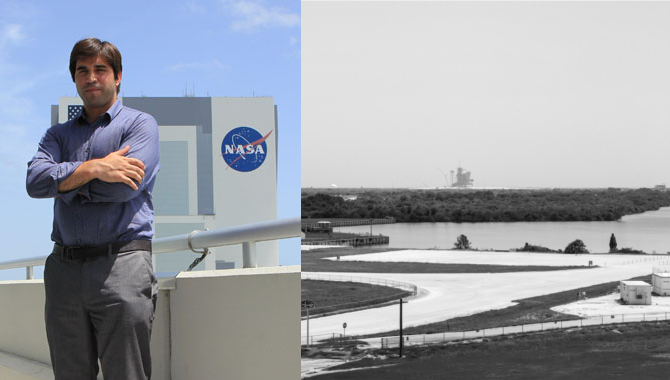
Billows of smoke and the water near Launch Pad 39A at NASA's Kennedy Space Center in Florida capture the brilliant light of space shuttle Discovery's lift-off on the STS-119 mission. Photo Credit: NASA/Sandra Joseph, Kevin O'Connell March 15, 2009.
July 31, 2012 Vol. 5, Issue 7
Organizations make good decisions in a variety of ways, according to Tom Davenport and Brook Manville.

Billows of smoke and the water near Launch Pad 39A at NASA’s Kennedy Space Center in Florida capture the brilliant light of space shuttle Discovery’s lift-off on the STS-119 mission.
Photo Credit: NASA/Sandra Joseph, Kevin O’Connell March 15, 2009.
On November 14, 2008, as Space Shuttle Endeavor rocketed skyward on STS-126, flight controllers monitoring data during the ascent noted an unexpected hydrogen flow increase from one of the shuttle’s main engines. Despite this in-flight anomaly, the launch proceeded smoothly, but the issue would require immediate attention as soon as Endeavor landed safely on November 30.
To ensure the safety of future shuttle missions, management, along with the technical community, needed the best possible analysis to understand what happened on STS-126 and its implications for the next mission, STS-119, and future missions. The formal decision-making processes that followed included three Flight Readiness Reviews, which brought together representatives of the program, engineering, and safety and mission assurance communities to review the data and evaluate the soundness of the flight rationale.
Davenport and Manville feature the STS-119 launch decision as one of a dozen case studies in Judgment Calls: 12 Stories of Big Decisions and the Teams that Got Them Right. (They draw extensively from the Academy’s STS-119 case study as well as from interviews with leaders such as NASA Chief Engineer Mike Ryschkewitsch.) Dispelling the myth of the lone leader making the tough call, they focus instead on organizational judgment that involves many parties. As ASK Magazine Executive Editor Larry Prusak notes in the foreword, organizational judgment is “the collective capacity to make good calls and wise moves when the need for them exceeds the scope of any single leader’s direct control.” STS-119 is one of three examples Davenport and Manville offer of a participative problem-solving process. Other cases focus on the uses of technology and analytics, the power of organizational culture, and the importance of leaders setting the context. As they explain:
“Good organizational judgment usually involves reframing decisions as a participative process of problem solving. It takes advantage—and often considerable advantage—of the widening array of data now available in the world, and the advancing technological and analytical tools to interpret it. It is shaped by, and often itself shapes, powerful organizational culture based on values such as participation, deliberation, diversity of thought, constructive challenge and debate, and the like. And as our fourth crosscutting theme highlights, good organizational judgment is often created by leaders—not as great “deciders” themselves, but as more egoless developers of the right context and structures to allow their organizations to find solutions more collectively.”
Learn more about Judgment Calls.
Read the STS-119 Flow Control Valve Case Study.









